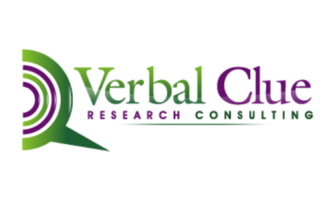
You might hear the title of this piece and think I’m about to sing the chorus of Tina Turner’s “What’s Love Got to Do With It?” (I do love to sing, but I’ll spare you for now.) But it’s a fair question in my world: When it comes to moderating healthcare and wellness research, what’s Black got to do with it?
The short answer? Quite a lot. But maybe not in the way you think.
The Moderator’s Chair Is Never Neutral
Moderators aren’t just facilitators of conversation. We’re trust-builders, translators, and sometimes cultural diplomats. Everything about us — our tone, our body language, our lived experiences — shapes the dynamics in the room.
When I step into a focus group, an in-depth interview, or a patient journey mapping session, I bring all my professional skills to the table: decades of qualitative research experience, thousands of hours guiding sensitive conversations, and a well-honed ability to get past surface-level answers.
But I also bring something else — my identity as a Black woman. It’s not my only credential. It’s not my primary selling point. But it’s a part of who I am, and in certain settings, it changes the conversation in ways that matter.
Why Representation Can Change the Conversation
Healthcare and wellness research often touches deeply personal territory: illness, pain, mental health, body image, cultural beliefs about care, even mistrust of the medical system.
If you’ve been following the news (or history), you know why that mistrust exists in many communities of color. So imagine you’re a patient sitting across from someone who’s asking you to share your most vulnerable truths about your diagnosis or treatment. If you feel a spark of recognition — shared experience, shared history, shared cultural language — that barrier to openness gets lower.
In practice, this can mean:
-
More candor: A respondent might share what they really think about a treatment, instead of the “safe” answer.
-
Deeper context: Cultural references or metaphors flow without fear they’ll be misunderstood.
-
Less filtering: Sensitive topics like hair care and chemotherapy, spirituality in end-of-life decisions, or mental health stigma can be discussed without hesitation.
These moments aren’t about “matching” race to race in every group — that’s too simplistic. They’re about acknowledging that who asks the questions can affect what gets said.
Cultural Fluency Is a Skill — and a Mindset
Let’s be clear: cultural fluency isn’t automatic just because of identity. Being a Black moderator doesn’t mean I automatically understand every Black person’s lived experience — just as no moderator can claim to perfectly “get” every member of their own demographic.
But my lived experience does mean I’ve navigated certain codes, contexts, and unspoken rules in ways that sharpen my ability to listen and interpret. I’ve learned how to pick up on micro-expressions that signal hesitation. I know when a pause is just a pause — and when it’s a signal that trust needs more time to build.
These skills aren’t limited to “diverse” projects. They apply in every room, with every audience. Which is why I resist the idea of being only called in for “Black” or “DEI” studies. Cultural fluency is just one layer of my moderator’s toolkit — it’s not the whole kit.
The Business Case for More Inclusive Moderation
In healthcare and wellness research, missing cultural nuance isn’t just a “nice to have” problem — it’s a risk to data quality. Misinterpreted responses can lead to misguided strategies, ineffective communications, and even products that don’t meet the needs of their intended users.
When clients think intentionally about who moderates their studies, they can:
-
Increase participant trust and openness.
-
Gather richer, more authentic data.
-
Avoid cultural blind spots in analysis and reporting.
-
Strengthen credibility with audiences who may be skeptical of “being researched.”
This doesn’t mean every study requires a perfect demographic match between moderator and participants. It does mean thinking beyond convenience when staffing — and recognizing that in certain contexts, identity and lived experience can be strategic advantages.
Avoiding the Pigeonhole Trap
I’ll be honest: one hesitation I’ve had about writing this piece is the fear of being pigeonholed. I’m proud to bring my perspective as a woman of color into my work — but I’m also a seasoned, versatile moderator who’s led studies in oncology, rare diseases, CNS disorders, women’s health, wellness, and beyond.
The value I bring isn’t confined to one audience. My cultural fluency enhances my work with all audiences, just as my research rigor enhances my work with audiences that share my cultural background.
Think of it this way: if my identity opens certain doors to deeper conversation, my professional expertise keeps the conversation productive, focused, and insight-rich — no matter who’s in the room.
Everything — and nothing.
Everything, because my identity adds a layer of trust, relatability, and cultural insight that can make a difference in certain studies.
Nothing, because it doesn’t define the limits of my skill set or the types of projects I can (and do) lead successfully.
The best moderators bring their whole selves to the work — all their skills, experiences, perspectives, and yes, identities. In my case, being a Black woman is one thread in a much larger tapestry. And when that tapestry helps clients uncover richer truths, design more inclusive solutions, and connect with real people in meaningful ways… well, that’s music to my ears.
About the Author
Judithe Andre is a qualitative research specialist and founder of Verbal Clue Research. With over 20 years’ experience in healthcare, wellness, and pharmaceutical research — and a certified health coach’s lens on behavior change — she helps organizations uncover human truths that shape better products, programs, and communications.

Comments